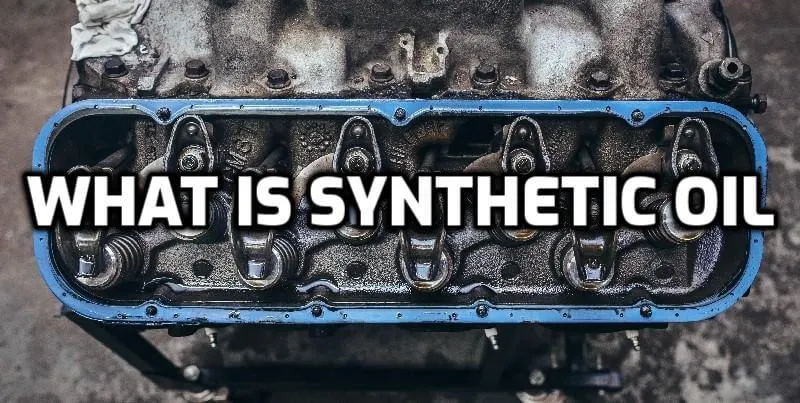Synthetic Vs Conventional Oil

Do you know the difference between synthetic and conventional oil? If not, this blog post is for you! Synthetic oil has a higher viscosity than conventional oils. This means that it will flow better in colder temperatures, which can be very important if your car operates outside of typical city conditions.
Synthetic oils also have a longer shelf-life than traditional oils as they are made from chemical blends rather than petroleum products. That means they are less likely to degrade, clog your engine’s oil galleries, or reduce the performance of other important components. Many people believe that synthetic oils are superior to conventional ones because they have a higher viscosity rating and remain fluid at lower temperatures. This is true for most cases but not all!
Composition
Synthetic Oil has no match when it comes to composition. Conventional oils are solely based on crude Oil and contain impurities and irregular molecular orientation that degrades their performance in extreme conditions.
On the other hand, Synthetic oils are based on a superior petroleum base and are refined to remove all impurities that might cause harm to your engine. Its molecular orientation is aligned to ensure better stability thus consistent performance even under pressure.
Protection
Better stability ensures better protection for the engine. Synthetic oils make sure the moving parts of your engine stay lubricated even under extreme heat and cold preventing any breakdown. As a result, they offer optimum protection to your engine. On the other hand, conventional oils have a bad reputation of failing under pressure situations causing damage to the engine.
Sludge
Conventional oils contain impurities that with time settles on different parts of your engine, forming sludge. This reduces the efficiency and longevity of the engine causing premature engine failures.
Synthetic oils are broken down to a molecular level and separated from impurities. This makes sure you are feeding clean and pure Oil to your engine. Thus your engine remains at top condition cranking out most mileage and power.
Viscosity
The improved composition of synthetic oils offers more viscosity at low and high temperatures enabling stellar performance in hot summers and cold winters. It’s the opposite in the case of conventional oils that evaporate under extreme heat and lose their mobility during cold.
Turbocharger Compatibility
New technology has enabled manufacturers to obtain massive power from smaller engines through turbochargers. Various tests have confirmed that a turbocharged vehicle runs most smoothly on Synthetic oils as these oils reach various engine parts quicker than conventional oils. Conventional oils tend to break down easily when fed to a turbocharged engine.
Oil Change Frequency
This is a vital factor you need to look out for, especially if you want the hassle of oil changes now and then. Conventional engine oils need to be replaced every 3000 to 5000 miles. The frequency may be more frequent in case the Oil breaks down.
This is not the case in the case of synthetic ones. A synthetic oil from any reputed brand will easily go for 7500 to 15000 miles or more depending on your usage. This saves up time and cost in the long run and offers you consistent performance and comfort all year.
Price
It’s the only criteria where conventional Oil has a slight advantage over synthetic ones. With a price tag 10% cheaper than synthetic ones, you may very well be tempted to opt for inferior conventional Oil. But it’s not all about the oil price. A simple engine failure can cost you more than the entire oil cost. Thus it’s recommended to take the safe route.
Conclusion:
Synthetic oils offer superior protection and performance under extreme conditions. They make sure your engine runs smoothly all year long, even during the summer and winter seasons. Conventional oils on the other hand are not as effective as synthetic ones in terms of protection and may cause damage to the engine if used for a turbocharged car or truck.
The price advantage is not much in the long run, when you consider engine repairs that cost more than conventional oil price. And finally to conclude this blog post content, it is important to go with synthetic oils over conventional ones for your car or truck. This ensures superior performance and protection under pressure situations. So if you are looking for a quick way out of changing your Oil every 3000 to 5000 miles, your best bet is Synthetic Oils.
Frequently Asked Questions (FAQ)
There are a few cases where you should not use synthetic oil. If your car is still under warranty, you should check with your dealer first. Some dealerships require conventional oil for warranty purposes.
If you have an older car, synthetic oil may not be compatible with seals and gaskets that have degraded over time. In this case, it’s best to stick with conventional oil.
Finally, if you’re on a tight budget, synthetic oil can be more expensive than conventional oil. However, it typically lasts longer between changes, so you may end up saving money in the long run.
Related Article
